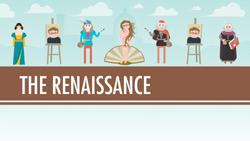| Enlightenment ideas had an impact on the politics and
arts of Eighteenth-Century Europe. While they liked to talk about
enlightened reforms, most rulers were more interested in the power and
stability of their nations. Their desire for balancing power, however,
could also lead to war. The Seven Years’ War became global as war
broke out in Europe, India, and North America.
Enlightenment and Absolutism
-
Philosophes believed that, in order to reform society
based on Enlightenment ideals, people should be governed by enlightened
rulers.
Enlightened Absolutism
In which all-powerful monarchs would govern by Enlightenment
principles.
Most philosophes believed that natural rights
Natural rights are those rights that all people
are born with—such as life, liberty, or the right to own personal property.
The philosophes believed that natural rights needed to
be established and preserved by enlightened monarchs.
Prussia, Russia and Austria were not significantly reformed
by enlightened monarchs in the late eighteenth century.
While their rulers made some reforms, in the end they
were all more interested in power and the balance of power than in Enlightenment
ideals.
Prussia: Army and Bureaucracy
Frederick William I demanded obedience and loyalty above
all else.
He maintained a highly efficient bureaucracy of civil
service workers.
By the end of his reign in 1740, he had doubled the size
of the army.
His successor
Frederick II was also known as Frederick the Great.
Frederick II enlarged the army by actively recruiting
the nobility into civil service, where he kept a strict watch over the
bureaucracy.
He was educated and cultured, and had even entertained
the French philosophe Voltaire at his court.
He granted limited freedom of the press and granted greater
religious toleration.
Frederick the II never abolished serfdom.
The Austrian Empire
Austria was a sprawling empire composed of many nationalities,
languages, religions, and cultures.
Empress Maria Theresa inherited the throne of Austria
in 1740.
She worked to centralize and strengthen her power and
that of the state.
Her son and heir, Joseph II, sought truly radical changes
based on Enlightenment ideas.
Joseph II of Austria freed the serfs but antagonized his
nobles in doing so.
His own heirs undid most of his reforms.
Catherine the Great
Catherine II ruled Russia from 1762 to 1796
Catherine the Great favored the landed nobility.
This led to worse conditions for peasants that ended
up expanding serfdom.
She also enlarged the Russian Empire.
Although she read the works of the philosophes
and even met with Denis Diderot, she never enacted any of their ideas,
such as a reform the law code.
The concern of eighteenth-century monarchs for a balance
of power basically involved the desire to prevent domination by one state.
This did not mean a desire for peace.
Absolutist rulers created large armies to defend their
state's secury. But these large armies were often used to conquer
territory and gain new land.
REVIEW & DO
NOW
Answer the following questions in your spiral notebooks: |
| What is Enlightened Absolutism?
What are Natural Rights? |
Whom did the Philosophes believe should give people those
rights?
Were there any Enlightened Monarchs? |
|
|
The Seven Years’ War
-
The Seven Years’ War (1756-1763) became global as
new alliances were formed and as war broke out in Europe, India, and North
America.
The stage for the war was set when a king died without a
male heir:
The War of Austrian Succession (1740-1748)
The War of the Austrian Succession began when King Frederick
of Prussia invaded Austrian Silesia.
When Austrian Emperor Charles VI died without a male
heir, his daughter Maria Theresa took the throne.
Prussia did not recognize her legitimacy, and invaded
the country.
France entered the war, against Austria.
Maria Theresa and Austria allied with Great Britain.
When the war was over, Maria Theresa refused to accept
the terms for peace.
She refused to give up Silesia.
The War in Europe
Alliances across Europe were fundamentally changed following
the War of Austrian succession.
The diplomatic revolution of 1756 led to a world-wide
war.
The war began in Europe.
The War in India
The British defeated the French in India during the Seven
Years’ War.
With the Treaty of Paris in 1763, the French withdrew
and left India to the British.
The War in North America
Outcomes of the Seven Years War:
Great Britain took control of Canada and the land east
of the Mississippi from the French.
France's ally, Spain, lost Spanish Florida to Britain.
France gave Louisiana to Spain.
REVIEW & DO
NOW
Answer the following questions in your spiral notebooks: |
| What set the state for the Seven Years' War?
What was the War of Austrian Succession?
Who won the war in India? |
What lands did Great Britain gain in the Seven Years
War?
What lands did Spain gain? What did Spain lose?
What country lost everything and gained nothing? |
|
|
Enlightenment & Arts
-
The Eighteenth Century was a great period in the history
of European architecture, art, music, and literature.
Architecture & Art
Rococo was a highly secular artistic style popular
by the 1730s.
Music
The eighteenth century produced much great music.
Wolfgang Amadeus Mozart was a child prodigy
who gave his first harpsichord concert at age six and wrote his first opera
at age 12.
However, his failure to secure a regular patron to support
him financially made his life miserable. Regardless of his misery,
he wrote music passionately.
His works The Marriage of Figaro, The Magic
Flute, and Don Giovanni are three of the world’s greatest operas.
REVIEW & DO
NOW
Answer the following questions in your spiral notebooks: |
| At what age did Mozart write his first opera? |
|
|
|
|





